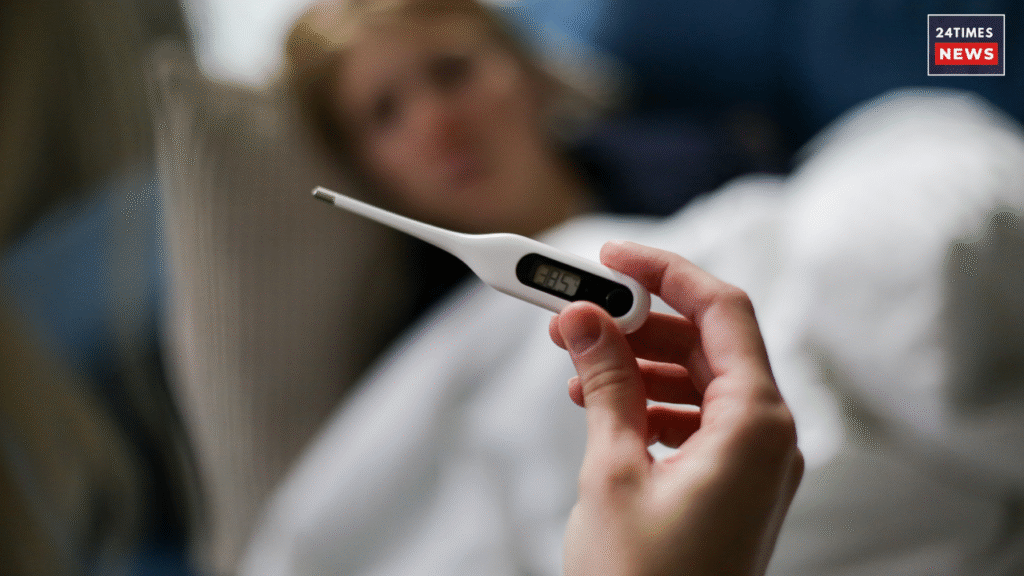These days viral fever dengue malaria and chikungunya are spreadingvery quickly. along with this mosquito borne illnesses the risk of infections is also increasing the risk of infections is also increasing, leading to a rise in typhoid cases. if fever lasts for many days or keeps coming back, it could be a sign of typhoid. in such cases, one should not ignore the condition and must consult a doctor immediately. typhoid symptoms are different from noraml fever, so it is importat to identify them on time. Common signs include prolonged high fever, weakness stomach pain, loss of appetite and sometimes rashes. to confirm the typhoid specific blood tests like widal or typhoid are required. early detection and proper treament help in fasterrecovery let us understand that the symptoms of typhoid and how we can prevent it effectively.
Symptoms of Typhoid
In the early stage, typhoid symptoms often resemble those of a regular fever, making it difficult to identify. clear signs usually become noticeable ater one to two weeks. the first and most common symptoms is fever, which tends to rise, especially in the afternoon or evening/along with fever, persistent headaches are also very common and can sometimes become quite severe. musclepain, body aches and a constant feeling of restlessness are other noticeable symptoms. many patients experience a significant loss of appetite and do not feel like eating, which further weakens the body. fatigue and extreme weakness are also major indicators, as the body struggles to fight the infection. since these symptoms are often confused with the viral fever, timely medicaladvice and tests are necessary to confirm whether it is typhoid. recognizing these early signs can help starts treatment on time and prevent the complications.

Severe typhoid fever can show more alarming symptoms that require urgent medical attention. the body temperature may rise above 104 degre celsius, often accopained by the intense abdomainal pain, especially in the lower right side. swelling and tenderness in the stomach are also common. In some of the cases, small red spots may appear on the chest and abdomen. patients may sffer from sevre diarrhea or constipation along with cotinuous digestive issues. in advanced stages, blood may even appear in the stool. typhoid spreads mainly through consumption of food or water contaminated with the stool of an infected person. poor hygiene practices greatly increase the risk. close or direct contact with a patient can also transmit the infection, making the cleanliness and caution essential for prevention.





